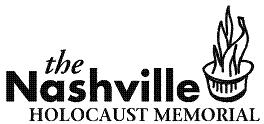Felicia Anchor honors her paternal grandparents, Fela and Mordka Figlarz, who were born in Czestochowa, Poland, and Przyrow, Poland, respectively. Before the war, Czestochowa had a population of 30,000 Jews. It was known as the home of a famous Catholic monastery, Jasna Gora, the home of the Black Virgin. The town also had numerous synagogues, including a “liberal” German synagogue. The town was fairly prosperous, and children attended integrated schools. Fela and Mordka raised four children and enjoyed a comfortable upper middle class Jewish lifestyle. Mordka had a lumber yard and a flour mill.
The circumstances changed drastically when the Nazis rose to power. On April 9, 1941, the German mayor announced the establishment of a Jewish quarter. On April 17, the Jewish ghetto was established, and the family was soon sent to live there. On September 22, 1942, the ghetto was surrounded and transports were sent to Treblinka. It is believed that Mordka and his entire immediate family, except for his son, Irving, were taken there and killed. Anchor does not know many details about their lives, but she was named after Fela, her grandmother. Anchor’s father never got over the pain of losing his parents during the Holocaust. Although the family says Kaddish on September 22 of every year, Anchor’s father “feels victimized by the Nazis and has never gotten over the bitterness he feels. It was many years before he was willing to provide personal details about his family.”
